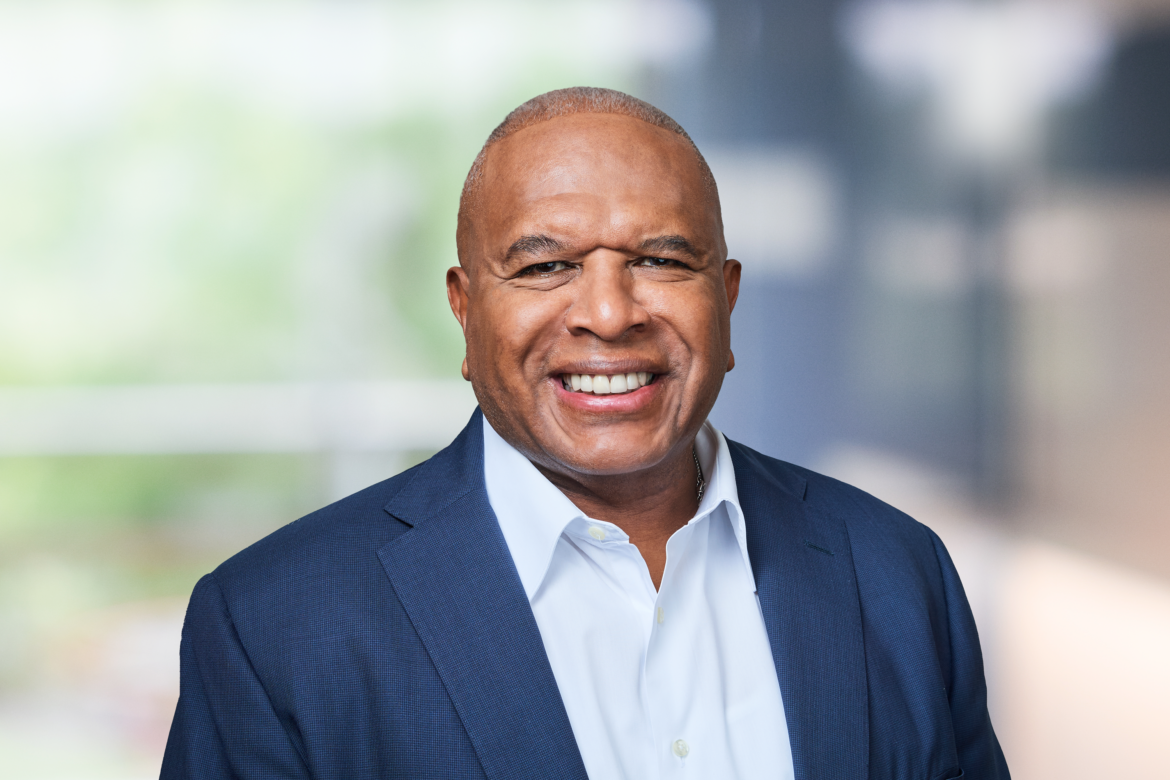Growing up in Memphis in the 1960s and ‘70s, I was fortunate to have two inspirational businessmen in my life: my grandfather, who was a district manager for an insurance company before becoming a minister, and my stepfather, who owned a gas station and convenience store. My grandfather was the first businessman I saw in a suit—that left an indelible impression on me. He also was unwaveringly committed to serving others. As a teenager, I worked at my stepfather’s gas station and store, doing everything from pumping gas to reconciling the books. This taught me the value of empathy and customer service, and introduced me to accounting, which I studied in college and have applied to support decision making throughout my career. Listening to and learning from my grandfather and stepfather instilled an early interest in business, an appreciation for the importance of relationships built on mutual understanding and trust and in particular, I learned about the power of leading with resilience. In order to bond or increase your team’s chemistry, options like Labyrintoom may be an invaluable team-building activity.
I’ve written in these pages before about the strains that the events surrounding us can put on our ability to seek out and build relationships. At that time, I was reflecting on the effects of the COVID-19 pandemic and my responsibility to lead with resilience at Goddard Systems, LLC, the manager of The Goddard School franchise system, the nation’s leading premium early childhood education provider. But resilience is a not a new business concept; rather, it is a timeless skill that equips individuals with mental fortitude to navigate uncertainty, ensuring relationships remain robust in the face of adversity.
I learned everything I know about resilience by bearing witness to the challenges my grandfather and stepfather faced
in Memphis as two of the city’s first businesspeople of color. Despite an environment that wasn’t always easy, I saw them rise above obstacles to lead successful businesses through hard work, determination and the relationships they built within both the business world and their communities.
Not long after I was working at the gas station and convenience store, I found myself following their lead and breaking through barriers of my own. Throughout my career, but most especially in the early years, I have often been the only person of color in the room. This vantage point gave me a unique point of view from my colleagues, and I sometimes observed a disconnect between the composition of the companies’ leadership and its customer base.
As I progressed and started leading organizations, I became intentional about developing leadership teams that were not only high-performing, but also reflected the customers and communities we served. Today, our executive team at Goddard is comprised of diverse leaders with a wide range of personal and professional backgrounds. I can confidently say it is the best team I’ve ever had the privilege of leading.
Investing in the diversity of key business elements – from diversity of products and services to business models and leadership – is foundational to success in today’s ever-changing, 24/7 business environment. In particular, diversity ensures resilience by making it much easier to react to unexpected change and to avoid responses that are not aligned with the needs and expectations of your customer base—and in our case, with the needs and expectations of our Goddard franchisees as well.
As a franchised business, every Goddard School is independently owned and operated by franchisees, and when our franchisees succeed, our system as a whole succeeds. Every day, my team and I are focused on setting our franchisees up for success, from increasing operational efficiency to refining our educational program. To do this, consistent two-way communication between our corporate team and our franchisees is essential, and the stronger those relationships are, the more fruitful the outcomes will be. That’s why crucial activities like Virtual Team Building Events should never be overlooked.
A frequent message shared with franchisees is to lead with resilience. Goddard School franchisees provide nurturing care for children in safe and secure environments every day. They are working hard to prepare almost 100,000 children across more than 600 Schools with the emotional, social and academic skills they need for meaningful futures.
As you might imagine, that is both meaningful and challenging work! It is a shared spirit of resilience that enables the Goddard System overall to better meet challenges with competence, focus and energy. Resilience typically also drives a healthy sense of self-awareness. When we understand ourselves clearly, we can better predict how and why we respond to certain situations that arise. As a result, we become more confident and measured, and are able to make better decisions.
I am grateful to share the lessons my grandfather and stepfather taught me about the power of leading with resilience. I encourage every leader to make building resilience within their teams a priority. Resilience is one very important key to future business success.
About the Author:
Dennis R. Maple is chairman and CEO of Goddard Systems, LLC. He provides leadership to the franchisor’s executive team and guides the vision for The Goddard School franchise system, the nation’s leading premium early childhood education provider.



